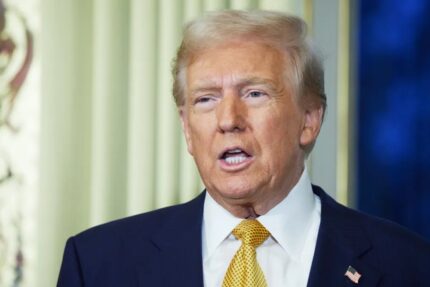On his first day back in office, former President Donald Trump issued a sweeping executive order granting blanket pardons to individuals convicted for their roles in the January 6, 2021, attack on the U.S. Capitol. The unprecedented move effectively nullifies years of work by federal prosecutors and the largest criminal investigation in U.S. history. While Trump’s Vice President, JD Vance, and Attorney General nominee, Pam Bondi, had recently suggested a more selective approach to the pardons, Trump opted for a broad measure that freed all convicted rioters.
Trump justified his decision by claiming that those incarcerated had endured “vicious” and “inhumane” treatment in federal custody. In a press conference at the White House, he defended his decision, saying, “These people have already served years in prison, and they’ve served them viciously. It’s a disgusting prison. It’s been horrible.” His remarks were met with celebrations among supporters of the rioters, particularly outside Washington, D.C., jail facilities where some high-profile convicts, such as Proud Boys leader Enrique Tarrio and Rachel Powell, were released.
Legal Experts and Public Reaction Divided over Donald Trump actions
While Donald Trump’s supporters hailed the pardons as a long-overdue correction of what they see as political persecution, legal experts and opposition leaders expressed deep concern over the decision. Lisa Gilbert, co-president of the advocacy group Public Citizen, criticized the move, stating, “The overall consensus was that we would see a differentiation between those who committed violent acts and those who did not. Instead, we see a blanket pardon, even for violent criminals.”
The Justice Department’s last report indicated that over 1,500 people had been charged in connection with the riot, with more than 600 convicted for crimes involving assaulting or obstructing police officers. Critics argue that Trump’s decision not only undermines the judicial process but also signals leniency toward political violence. Furthermore, the FBI, which had been actively searching for at least 13 fugitives linked to the attack, has now halted its investigations following Trump’s order.
Political Fallout and Public Opinion
The political ramifications of Donald Trump’s decision are already reverberating across Washington. Democrats and some moderate Republicans have condemned the pardons, warning that they set a dangerous precedent. House Speaker Hakeem Jeffries called the decision “a direct attack on the rule of law,” while Senate Minority Leader Mitch McConnell, a longtime Donald Trump critic, refrained from direct condemnation but acknowledged the decision was “deeply concerning.”
Public sentiment appears to align more with critics than supporters of the blanket pardon. A recent Associated Press poll found that only two in ten Americans approve of pardoning most of those involved in the January 6 riot. The pardons may energize Trump’s base, but they could also alienate moderate voters ahead of the 2024 presidential election. As Trump positions himself as a champion of those he calls “political prisoners,” the broader electorate may see his actions as an endorsement of extremism rather than justice.
Future Implications and Policy Shifts
Trump’s decision also signals a dramatic shift in the Justice Department’s handling of cases related to the Capitol riot. By appointing Ed Martin as acting U.S. Attorney for Washington, D.C., Trump has placed a vocal critic of the January 6 investigations in charge of overseeing related legal matters. Martin, who organized a pro-Trump rally the day before the riot, is expected to dismantle any remaining prosecutorial efforts tied to the attack.
Legal scholars warn that Donald Trump’s move could embolden future political violence, as it may encourage groups to act without fear of long-term legal consequences. Norm Pattis, a lawyer who defended some of the convicted rioters, argued that Trump’s decision was necessary for national unity, drawing comparisons to the mass pardons issued after the Civil War. However, many legal analysts reject this comparison, pointing out that the Civil War was a nationwide conflict, while the January 6 riot was a targeted attack on democratic institutions.
As the political and legal fallout from the pardons continues to unfold, one thing is certain: Donald Trump’s decision will remain a defining and divisive issue in American politics for years to come.














